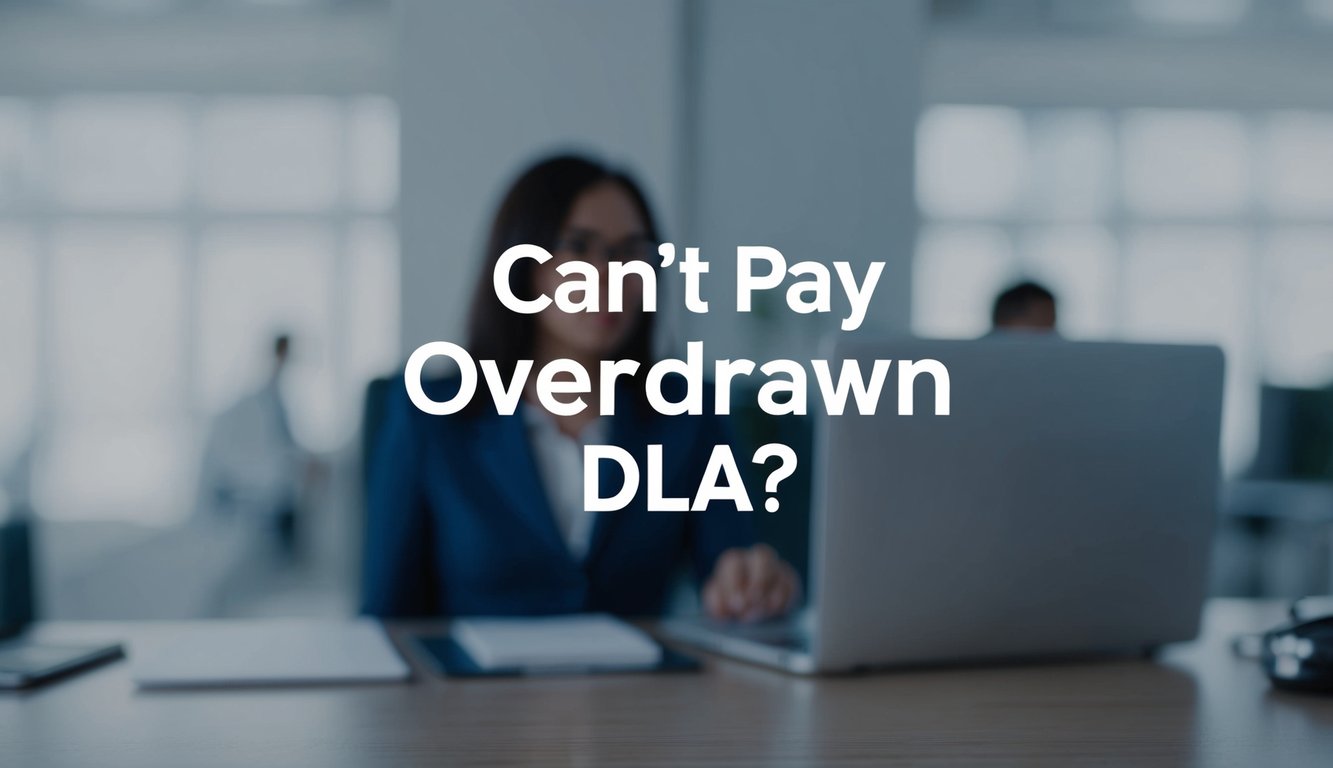What Happens if You Can’t Pay an Overdrawn Director’s Loan Account?
When you find yourself in a situation with an overdrawn director’s loan, it’s important to understand the potential consequences and take appropriate action. As a director, you may face significant financial implications if you’re unable to repay the loan, especially if your company enters liquidation.
If your business is still trading and your director’s loan account is overdrawn by more than £10,000, you’ll be subject to s455 tax at a rate of 32.5%. This can put a considerable strain on your finances. Should your company enter liquidation, the insolvency practitioner will seek to recover the loan amount as it’s considered an asset of the company. Failing to address this issue promptly could lead to legal action and, in severe cases, bankruptcy proceedings.
Key Takeaways
- Overdrawn director’s loans can result in hefty tax charges and legal consequences
- Prompt communication with insolvency practitioners is essential for negotiating repayment terms
- Seeking professional advice early can help you navigate the complexities of loan repayment
What Happens When You Can’t Repay an Overdrawn Director’s Loan?
An overdrawn director’s loan can create significant financial complications, especially if you’re unable to repay it. If your company is still trading and your loan exceeds £10,000, you’ll face a hefty 32.5% s455 tax. This tax burden becomes even more pressing if your business enters liquidation.
During liquidation, the insolvency practitioner will contact you to repay the loan. The amount could range from £10,000 to £300,000 or more. As this loan is a company asset, the practitioner’s duty is to recover these funds to pay creditors.
If you fail to repay and have substantial personal assets, such as property, the insolvency practitioner may initiate legal action. This could potentially lead to bankruptcy proceedings.
You should engage with the insolvency practitioner promptly – we are qualified, experienced and available to discuss your options. Most are willing to negotiate reasonable terms. For instance, if you owe £50,000 and have £100,000 equity in your home, you might arrange a 12-month repayment plan or negotiate a reduced settlement based on your financial situation.
Insolvency practitioners typically prefer to avoid court action due to associated costs and time. By communicating openly, you’re more likely to reach a mutually agreeable solution, whether it’s an extended repayment period or a partial settlement.
Remember, burying your head in the sand is not an option. If you’re facing an overdrawn director’s loan, seek advice early. If an insolvency practitioner is already involved, discuss your options with them promptly to find a workable solution.
advice@andersonbrookes.co.uk or freephone number – 0800 1804 935

Consequences of Failing to Repay an Overdrawn Director’s Loan
Tax Implications Under S455
If you have an overdrawn director’s loan exceeding £10,000 whilst your company is still trading, you’ll face significant tax consequences. The S455 tax charge applies at a rate of 32.5% on the outstanding loan amount. This hefty tax burden serves as a strong deterrent against maintaining large overdrawn balances.
Risks During Company Liquidation
When your company enters liquidation, whether voluntarily or compulsorily, the situation becomes more complex. The appointed insolvency practitioner will actively pursue repayment of your overdrawn director’s loan, as it’s considered a company asset. The amount owed could range from a few thousand pounds to hundreds of thousands, depending on your specific circumstances.
Potential Legal Action and Bankruptcy
If you have personal assets, such as property or investments, and fail to repay the loan, the insolvency practitioner may initiate legal proceedings against you. This could ultimately lead to bankruptcy court.
Possible arrangements might include:
- Extended repayment terms (e.g. 12 months to repay)
- Negotiated settlements for a reduced amount
- Discounts for quick repayment
Remember, most insolvency practitioners prefer to avoid costly and time-consuming legal battles. By communicating openly and honestly about your financial situation, you’re more likely to reach a mutually acceptable agreement.
Dealing with Insolvency Practitioners
These professionals are often commercially minded and aim to recover funds for creditors whilst minimising expenses. By initiating dialogue early, you position yourself for more favourable negotiations.
Insolvency practitioners typically prefer avoiding court proceedings due to associated costs and time constraints. This preference often translates to a willingness to explore mutually beneficial arrangements.
Negotiating Repayment Terms
When discussing your overdrawn director’s loan with an insolvency practitioner, several options may be available:
- Extended repayment plans
- Partial settlements
- Discounts for prompt payment
Your personal circumstances, including assets and liabilities, will influence the practitioner’s approach. For instance, if you owe £50,000 and have £100,000 equity in your home, the practitioner might consider this when proposing terms.
Potential repayment arrangements could include:
- A 12-month plan to repay the full amount
- A reduced settlement if you can demonstrate limited funds
- A discounted sum for immediate payment
It’s essential to provide a clear picture of your financial situation. If you’re married, for example, your share of property equity might be less than initially assumed, potentially affecting the settlement amount.
Remember, most insolvency practitioners prefer reaching an agreement over pursuing legal action. By engaging openly and promptly, you’re more likely to secure a manageable repayment deal and avoid the stress of court proceedings.
Strategies for Paying Back Overdrawn Director’s Loans
Extended Repayment Plans
If you find yourself unable to immediately repay an overdrawn director’s loan, don’t panic. Many insolvency practitioners are open to negotiating extended repayment plans. This approach can give you breathing room to settle your debt over time. For instance, if you owe £50,000, the practitioner might agree to a 12-month repayment plan. This can be particularly helpful if you’re facing financial constraints after your company’s liquidation.
By being proactive, you demonstrate good faith and increase your chances of securing a favourable arrangement. Remember, most practitioners prefer to avoid costly and time-consuming legal battles, so they’re often willing to consider reasonable proposals for staged repayments.
Partial Repayment and Settlements
In some cases, you might be able to negotiate a partial repayment or settlement of your overdrawn director’s loan. This option can be particularly relevant if you can demonstrate limited financial means or if there are complexities in your personal financial situation.
For example:
If you owe £50,000 but can show that your assets are jointly owned or limited, the insolvency practitioner might accept a smaller settlement.
You might be offered a discount for quick payment, although this may be challenging if you’re already in financial difficulty.
When proposing a settlement, be prepared to provide:
A clear picture of your current financial situation
Evidence of any joint ownership of assets
A realistic offer based on what you can afford
It’s important to note that while partial settlements are possible, they’re not guaranteed. The insolvency practitioner’s primary duty is to recover funds for creditors, so any offer must be reasonable and justifiable.
Concluding Thoughts on Director’s Loan Repayment
If you’re unable to repay an overdrawn director’s loan, the consequences can be serious. For trading companies, loans exceeding £10,000 attract a hefty 32.5% tax. The situation becomes more complex if your company enters liquidation.
During liquidation, the insolvency practitioner will pursue repayment of the loan as it’s a company asset. They may initiate legal action if you have personal assets but refuse to cooperate. This could potentially lead to bankruptcy proceedings.
For instance, if you owe £50,000 and have £100,000 equity in your home, the practitioner may accept a payment plan or a discounted lump sum. They often prefer swift resolutions over lengthy, costly legal battles.
Remember, burying your head in the sand is not an option. Seek advice early if you’re concerned about an overdrawn director’s loan. If liquidation is already underway, communicate openly with the insolvency practitioner. In most cases, a mutually acceptable arrangement can be reached.
Speak to Anderson Brookes – Free Consultation
Book today with our debt and insolvency advisers!
Google Reviews

&




